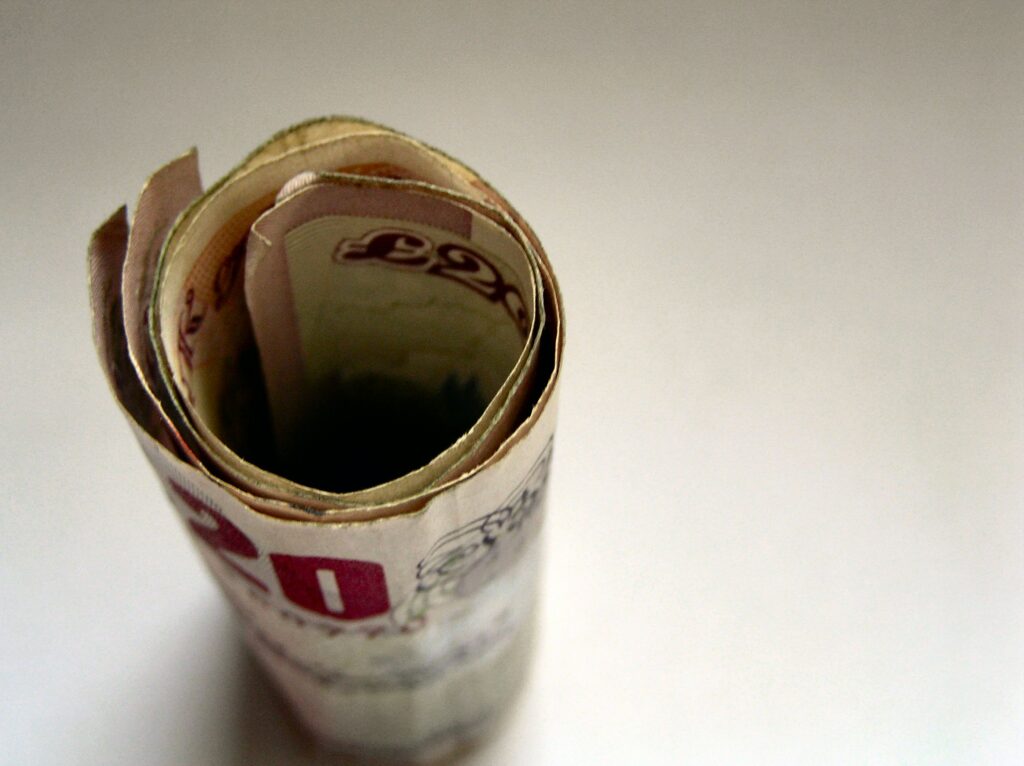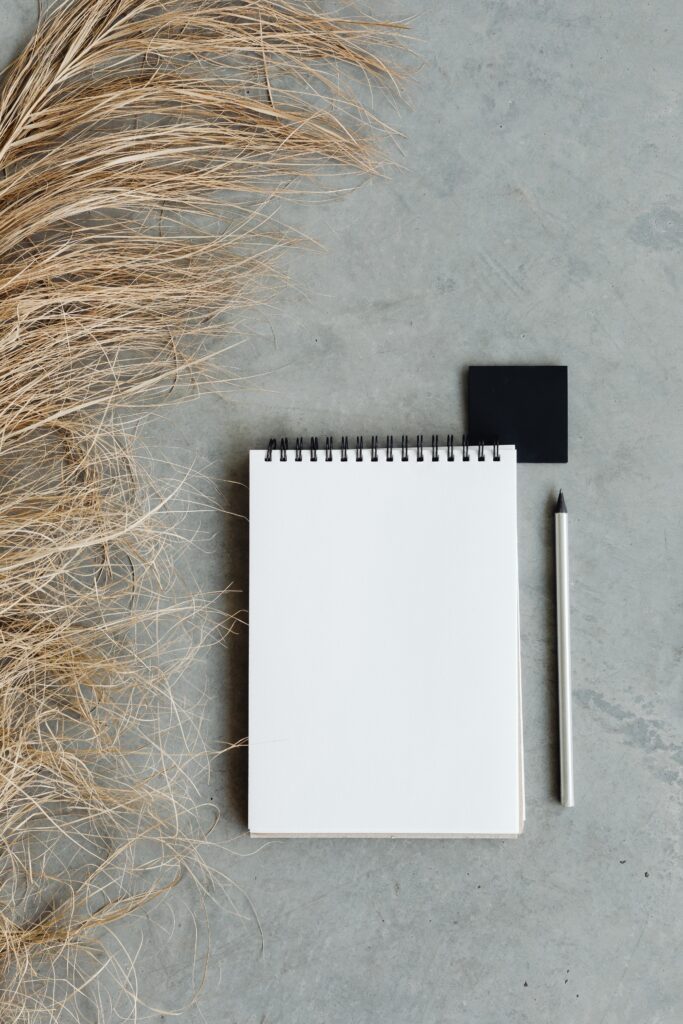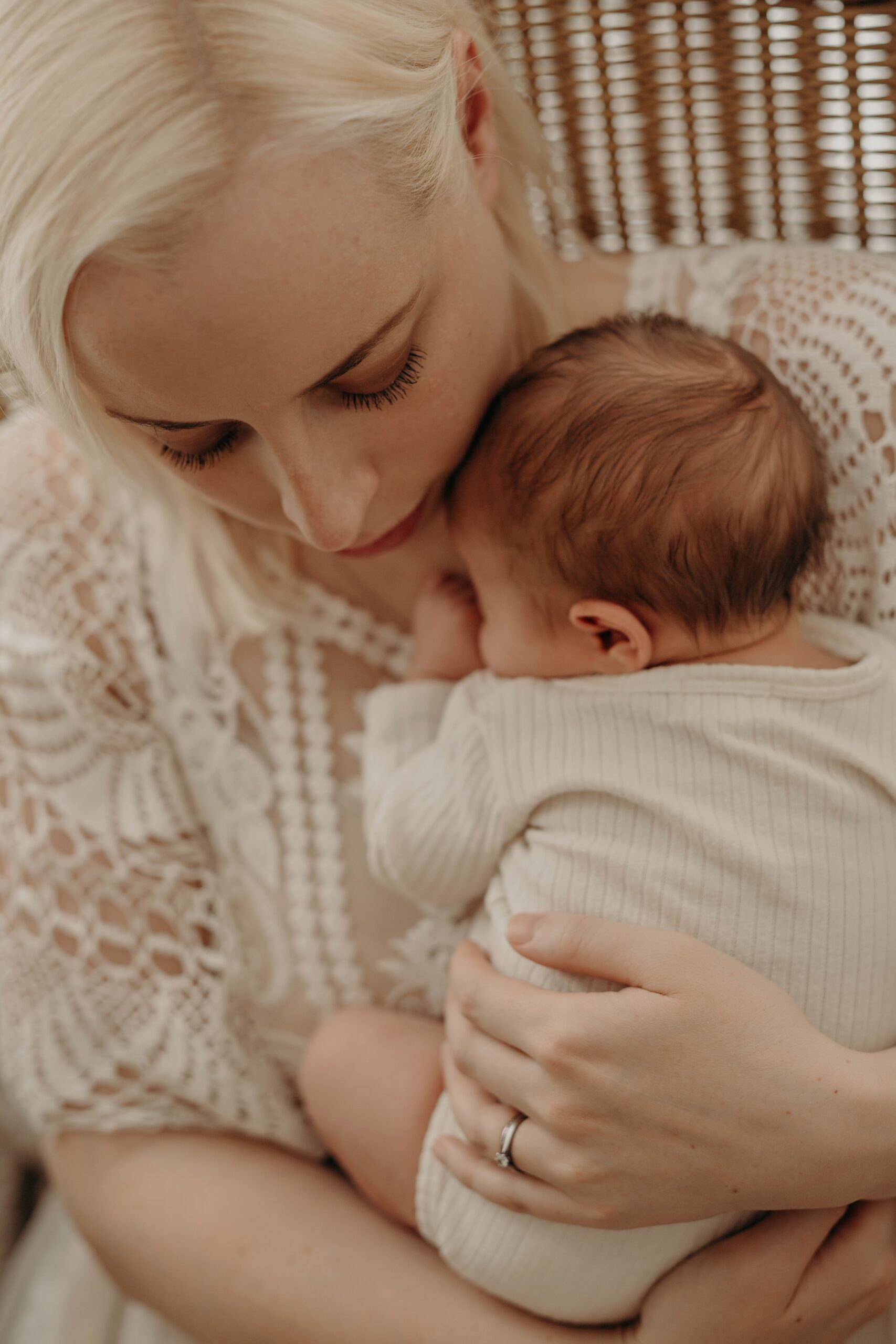After learning to budget after having my first baby in 2019 I have completely overhauled the way I manage my money to improve my financial situation. A large part of achieving this has been by improving my habits when it comes to money management. So here are 5 bad money habits to leave in 2022.

Two and half years of making changes and putting systems in place to maximise by money has done a lot to ensure that 2022 was a good money year for me. Firstly, we overpaid our mortgage by £4500 which is our primary financial goal as a family, the clue is in the name! I also invested some money and most importantly we saved towards funding my impending drop in income due to maternity leave in 2023 when I will be taking three months on statutory maternity pay and three months unpaid leave. Whilst this is all very positive, there are clearly still some areas I could improve upon so I’ve made a list of bad financial habits that I don’t want to take with me into 2023 (and you shouldn’t either) – So here goes…
Bad money habits 1: Emotional spending
If you’re a living, breathing person and you DON’T struggle with this, you’re a better one than me! I definitely have a tendency to spend emotionally and I strongly suspect that most of us do however the triggers will be different for each of us. For me, boredom is a huge culprit. It’s something I have to be very mindful of whilst I’m currently on maternity leave. As much as we may love our little bundles of joy, you don’t necessarily get a lot of interaction from a newborn. This means that when your partner goes back to work it can leave you at a loose end. It is the winter season whilst my baby is young this time which means strolls in the park are not as pleasant (how COLD has it been though?!) and invariably I end up in the shop for a wander around somewhere warm and dry in an effort to get out of the house. Even with the best intentions of just window shopping, it can still be a recipe for spending more than I intended to. I’ve also been known to spend money when I’m feeling down to get that little dopamine hit that comes along with making a purchase and I expect the majority of us have done this from time to time. In 2023 I’m going to be more conscious of what is motivating my intended purchases and try avoid those emotional spending traps and triggers. By recognising how I’m feeling, and what might set me on a beeline for B&M, I can put other strategies in place such as prioritising self care or arranging a visit to see a friend instead of trying, and usually failing, to buy my way out of my emotions.
Bad money habits 2: Relying on credit
Wait, I’m a money saving blog and I have a credit card? Yes I do. As a family, we are debt free in the sense that any credit we use we can technically pay off immediately. Credit can be useful in terms of managing cash flow or emergencies such as when our eternally broken cooker tripped the electric and we had to get a new one right before Christmas. Using a credit card also affords me extra protection under Section 75 of the Consumer Credit Act so we always use it for booking things like holidays. We have a zero percent interest credit card and we can use it responsibly (if you can’t, you probably shouldn’t have one). That being said I have found us using the credit card more often. It’s a bad habit that can quickly turn into a difficult situation and for that reason, I’d like to reduce the use of our credit card in 2023. To do this means I need to plan better so budgeting and sinking funds will be a lifesaver here! There are a few possible expenses on the horizon that I can foresee in 2023 and so I want to start building up funds to be ready in the event I need to use them rather than having to rely on credit and then shuffle money around afterwards.

Bad money habits 3: Not tracking spending.
I budget monthly and am guilty of being super focussed with tracking my spending at the start and then drifting off by the end. Tracking your spending is such an important part of a successful budget. A regular budget check in can quickly highlight any areas of concern such as unidentified transactions or subscriptions you didn’t realise were still active. It can also make it clear if you are spending beyond your goals in a certain category and that knowledge allows you to rein it back in before it gets out of hand, saving you money in the process. I would recommend a weekly spending check in as a minimum but you could even do it daily or as often as works for you. To track your spending all you need to do is go through your receipts and online banking transactions and list out everything you spent during that period. If you have budget categories then you can work out how much you have spent in each area and compare this to your budgeted amount so that you know how much you have remaining. This year I want to be more consistent with tracking my spending as this is going to be absolutely vital in coping with maternity pay and unpaid leave. Part of the issue I think I’m having is not deciding on a set method to track my spending. I am 101% a physical pen and paper woman, I much prefer to write down my spending but I don’t then love having to get my calculator out to add up each different category. In contrast, an excel sheet will calculate it for me but that involves getting the laptop out… I definitely need to decide on a method and stick with it.
Bad money habits 4: Trying to buy a feeling
This is similar to emotional spending but much more specific in that I sometimes think I want a particular product but what I ACTUALLY want is the feeling I attach to that product. For example I don’t really want a new mug, what I actually want is to feel cozy at home. I then attach this value to the mug thinking that if I make this purchase, I’ll achieve this feeling when actually, that’s not how it works. Chances are you’ve done this unknowingly and it’s the lack of awareness that makes this bad money habit such a danger to your budget. My strategy here is going to be to stop myself before making a purchase and ask myself ‘What am I actually trying to buy?’ – That kind of critical analysis of my own thought processes should help me avoid making these misguided purchases and save me some money in the long run.
Bad money habits 5: Expenses that are not in line with my goals.
I definitely subscribe to a dual purpose budget. I don’t believe in extreme frugality and putting all of your available cash towards the future at the total expense of the present. I also don’t believe in using the fact that tomorrow isn’t promised as an excuse not to budget. The old YOLO (you only live once) argument is highly problematic because whilst you DO only live once, it could be well into your 70s, 80s or 90s and having the memory (or lack thereof) of an epic night out in your 20s won’t keep the heating on in retirement. My approach is that there should be a careful balance of spending some money for enjoyment now and some money towards building a better future. However, sometimes the balance shifts too much towards the former because it’s much easier to give in to our present self than it is to think about our future self and that’s where the change needs to come in. My best tip for combatting this is to have a very clear longer term goal and mine is paying off my mortgage early. By doing this I am able to weigh up the value of that immediate purchase against my long term vision. Yes, weekly takeaways are nice to have but they’re just not in line with the life I’m trying to create but a monthly treat is a good balance. Keeping these clear goals first and foremost in your mind when deciding what to do with your money will help you to decide what you want more, the instant reward or the progress towards your future ambitions.
It’s been interesting to reflect on what I could have done differently this year to maximise my money. If you’re doing the same, it’s important not to beat yourself up too much and rather than focussing on what you did last year, it’s much more productive to think about how you can improve your financial habits over the course of the next 12 months.
Happy budgeting!
Leigh
[lasso rel=”648q-4″ id=”741″]
